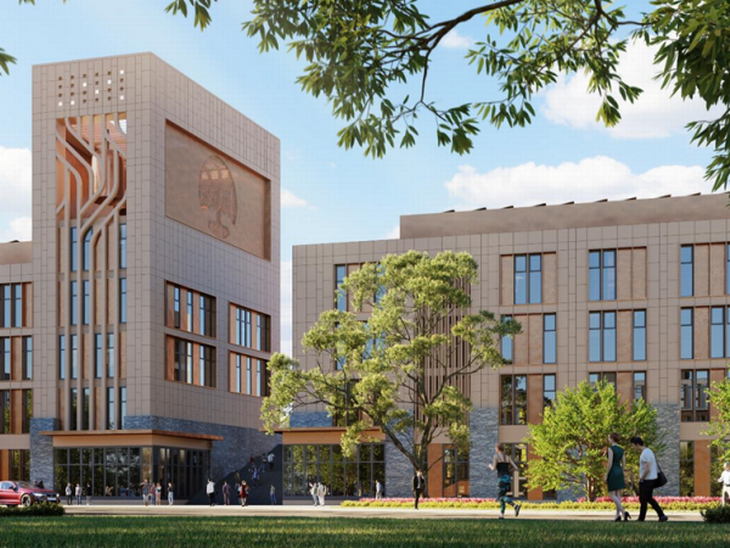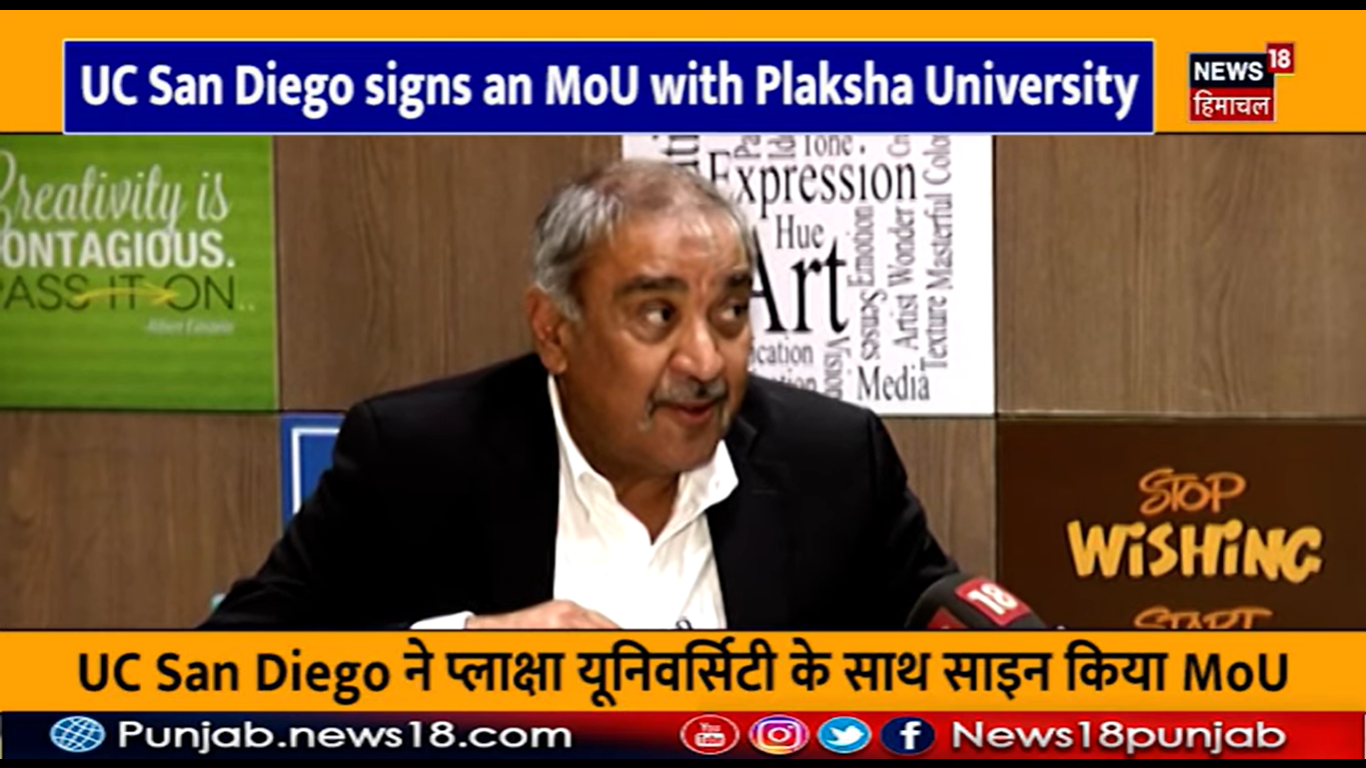
Every year, 1.3 million engineers graduate in the country from various engineering colleges around the country. Vineet Gupta believes that at least 70 per cent if not more are unemployable because of the way the subject is taught and also because industry requirements have dramatically changed from what is taught in these schools. Gupta, an IIT Delhi alumnus and Founder and Trustee of Plaksha University, believes technology education needs to be reimagined and with the founding of the Mohali, Punjab-based, university, he hopes to strike in the right direction.
As Gupta explains, many of the disciplines of engineering — whether they are electrical, mechanical or civil — the way they are taught and applied was relevant decades ago. But, today, when one looks at the engineering applications around us, whether its drones to robotics, engineering studies need to be reinvented. “Also,” as Gupta adds, “the whole element of rote learning to experiential education should also come into engineering.”
The world, Gupta says, needs more technology and more engineering, not less, but clearly there is a big gap between what colleges are producing and what the industry needs. “So, we felt that a high quality private effort in engineering education was needed. With those thoughts, Plaksha was born. It’s a collective endeavour. The university is founded by a trust. When we started, we were just four or five of us but we have 80 large donors now. They all contribute philanthropically. These are entrepreneurs in Silicon Valley and New York to Delhi and Singapore. It’s a large group and expanding. Once you contribute to the institution, it’s a donation. So, there’s no expectation of any return of any kind,” explains Gupta, also a co-founder of Ashoka University.
Plaksha is coming up on a 50 acre campus in Mohali and is envisaged as both a teaching and research institution. “We have crafted new disciplines of engineering and we are expecting our first class to come in next month. We will also like Plaksha to become the fountainhead for entrepreneurship, new ventures, start-ups, and innovation. Stanford did that in the Silicon Valley, MIT’s done that in Boston, and there are many examples: IIT Delhi and IIT Bombay are also great examples. A lot of entrepreneurs are coming from these places. We would like Plaksha to launch a lot of entrepreneurs,” says Gupta. Also, as Gupta explains, research at Plaksha should be focused around big problems, whether it’s the problem of healthcare or agriculture, or manufacturing 4.0. “So, really the big problems that India and the world face. Can technology help solve them?”
Essentially, the three pillars of Plaksha (scriptures say that river Saraswati, synonymous with learning, originated from a “world- tree” called Plaksha, which grew at the foothills of the Sivaliks. The name Plaksha reflects the idea of the university as a tree, from which a river of learning flows endlessly) will be: a focus on interdisciplinary technology curriculum, integrating liberal arts and design with experiential learning; instilling an entrepreneurial mindset, mentoring start-ups and creating an innovation ecosystem; and lastly; addressing grand challenges through research with thematic research centres with industry and government collaboration.

The first four majors that Plaksha will offer, says Prof Rudra Pratap, Vice-Chancellor, Plaksha, are computer science and AI; *robotics and cyber physical systems; biological systems engineering and data science-economics and business. “If you look at all these majors and if you think of the all the engineering disciplines, you will see all these disciplines are hidden in these four majors in an amorphous way. Take robotics and cyber physical systems; it incorporates mechanical, civil, materials, and chemical engineering, all of that is there in that major, and the same is true in biological systems engineering,” says Pratap.
Even in the computer science and AI course, Pratap says the emphasis will be on AI tools that every single engineer needs to learn today. AI is taken as a foundational engineering course for all these four majors. Or, take data science, economics and business: “Everybody knows that engineering drives economies. It makes sense to make data science, economics, and business come together as one major under engineering and technology because that’s what is driving things,” explains Pratap.
Gupta says these kinds of inter-disciplinary training are what industry is demanding. “Every business is talking about digital transformation, but the graduates either they are siloed in technology, or they’re siloed in economics. You don’t have people who can do both. Bio is going to have a big impact on the 21st century; we already see that in the Covid pandemic: the confluence of data science engineering and biology. These disciplines have been crafted with very 21st century contemporary application which is what really the world needs.” There are other elements that will go into making the programme holistic, he says, such as design and systems thinking and even helping engineers’ understanding of society and its needs. And, of course, maths will be central to all the programmes.
The first batch of 100 students is all set to start at the new campus of Plaksha in early October. The course fee for the fully residential campus education per year will be ₹8.5 lakh, though Gupta is quick to add that 25 per cent of students will be on scholarships. Plaksha has raised ₹690 crore in donations so far. The campus will come up in five or six phases by 2035. “We are fully funded for the first two phases. We think it will be a total investment of about ₹2,000 crore. We continue to raise more money. And, so far so good, but yes, institution building, especially of the sort that we are trying to build, requires major capital investments, and we are geared to do that.”
By 2023 the university will finish the first two phases and by that time it would have about 1,500 students and a hundred-odd faculty. “We are hoping that Plaksha over time will become the torchbearer of what technology education can be. So, reimagining technology education is one strong principle for us,” emphasises Gupta.
This article was first published on 23 Sep 2021, by Hindu BusinessLine on Campus.
*Name of RCPS (Robotics and Cyber-Physical Systems) has changed to RAS (Robotics and Autonomous Systems) in 2025.
*Last updated on June 30, 2025



